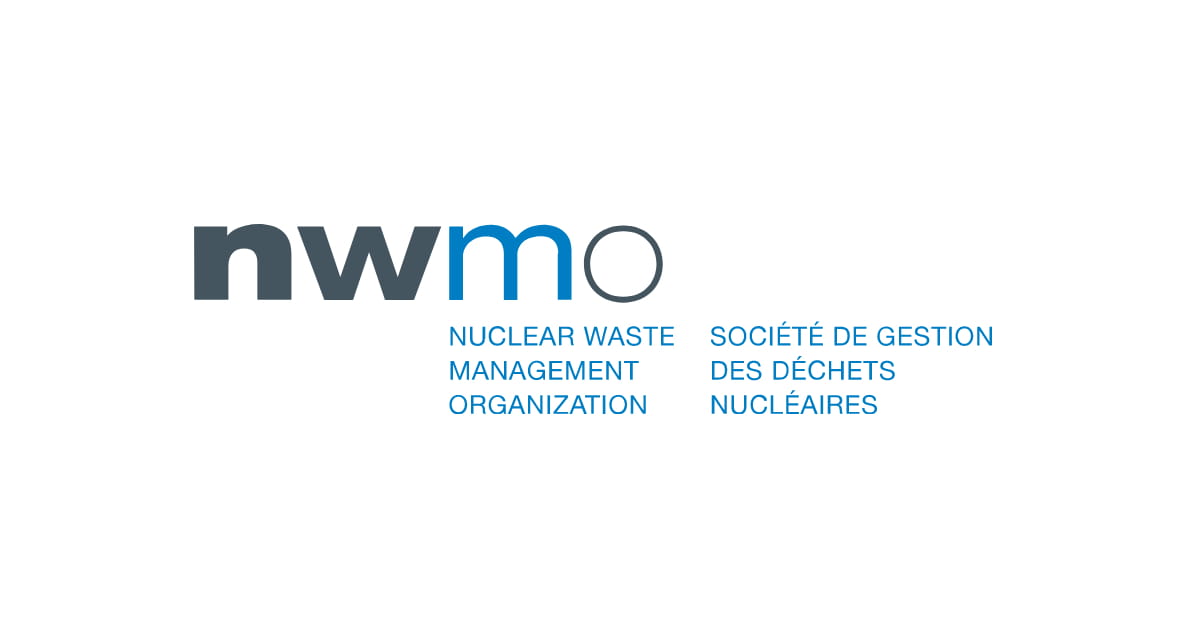Memorandum of Understanding (MOU) Between Natural Resources Canada (NRCan) and the Nuclear Waste Management Organization (NWMO) in Relation to Consultations With Aboriginal Peoples
A MOU between NRCan and the NWMO was signed on August 14, 2009. This MOU clarifies the roles and responsibilities of NRCan and the NWMO with respect to any obligation for consultations with Aboriginal peoples, pursuant to the Government’s duty to consult and the NWMO’s statutory obligations in relation to the Nuclear Fuel Waste Act (NFWA).
This MOU covers the period during that part of our work that precedes the identification of a site for the Project.
The NWMO site selection process has not yet been initiated. We are currently designing the site selection process and seeking input from Canadians and Aboriginal peoples on whether the proposed process is appropriate and what changes, if any, need to be made. Site selection will only begin after the process for site selection has been confirmed and finalized.
The following bullet points provide additional information about the content of the MOU.
More Information
- The MOU is intended to clarify the roles and responsibilities of NRCan and the NWMO with respect to consultations with Aboriginal peoples, pursuant to the Government’s duty to consult, and accommodate if necessary, and the NWMO’s statutory obligations under the NFWA.
- The NWMO is obliged under the NFWA to consult with Canadians and Aboriginal peoples throughout the implementation the Adaptive Phased Management (APM) approach – Canada’s safe, secure plan for managing nuclear fuel waste over the long term. It is also required to report to the Minister of Natural Resources on the results of its public consultations every three years.
- The NWMO is responsible for: Continuing to work with Aboriginal peoples regarding the NWMO’s work prior to the identification of a site for the Project; informing Aboriginal peoples during engagement activities that the NWMO will keep the Crown informed on its engagement activities; submitting to NRCan, by March 31 of each year, a report outlining the NWMO’s engagement activities with Aboriginal peoples for the previous year and an overview of its proposed activities for the upcoming year, as well as records supporting its activities related to Aboriginal engagement; providing regular briefings to NRCan on the NWMO’s engagement activities; maintaining a record of the engagement activities the NWMO carries out in relation to Aboriginal peoples prior to the identification of a site for the Project; advising the Crown in a timely fashion of any concerns raised by Aboriginal peoples that appear to be beyond the Project and the scope and responsibility of the NWMO; and after the site selection process has been initiated, providing the Crown with notice of communities that formally express interest in hosting the Project in a timely fashion.
- NRCan is responsible for: Monitoring engagement activities carried out by the NWMO in relation to Aboriginal peoples; assessing the need for consultations that may be necessary to meet the Government’s duty to consult; seeking assistance from other appropriate Government entities as required; and keeping the NWMO informed of any interactions the Crown may have with Aboriginal peoples in relation to the NWMO’s work. The Government has a legal duty to consult with Aboriginal peoples and accommodate, if required, when an Aboriginal treaty or right may be adversely affected by conduct contemplated by the Government.
- The Crown will monitor, review and provide feedback, if required, on the NWMO engagement activities with Aboriginal peoples throughout the implementation of the APM approach. Under the MOU, the NWMO will submit to NRCan, by March 31 of each year, a report outlining its engagement activities with Aboriginal peoples for the previous year and an overview of its proposed activities for the upcoming year, as well as records supporting its activities related to Aboriginal engagement. The NWMO will also provide regular briefings to NRCan on its engagement activities.
- NRCan is required to monitor and assess the NWMO’s plan toward implementing the APM approach, including its plan for consulting with Aboriginal peoples. As part of its review, NRCan will also look at whether there is a need for the Crown to supplement the NWMO’s activities.
- Pursuant to the NFWA, the NWMO is required to report in its triennial report the results of public consultations during three fiscal years, including an analysis of significant socio-economic effects of those activities on a community’s way of life, or on its social, cultural or economic aspirations.

